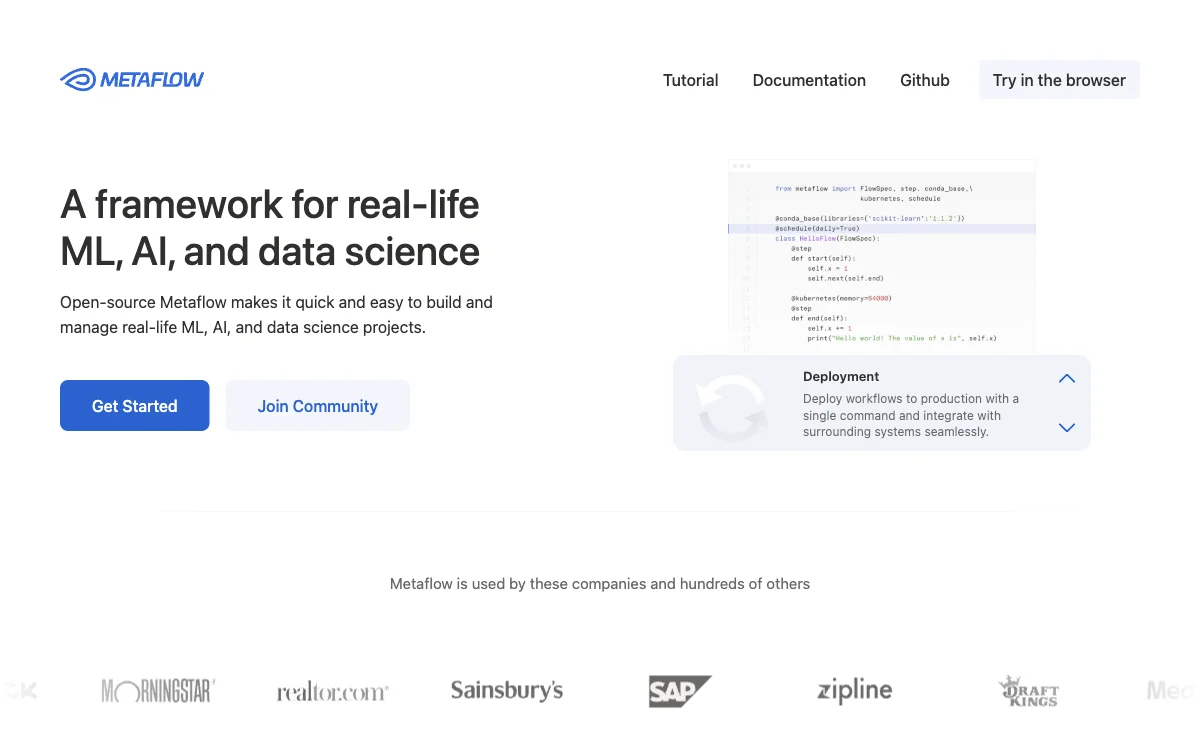Metaflow emerges as a pivotal open-source framework tailored for the intricate demands of real-life machine learning (ML), artificial intelligence (AI), and data science projects. Its inception at Netflix aimed to address the complex needs of developers and data scientists, facilitating a smoother transition from development to production. Metaflow's architecture is designed with a human-centric approach, ensuring that ML/AI engineers and data scientists can focus on innovation rather than the underlying infrastructure.
One of Metaflow's standout features is its automatic versioning capability, which tracks and stores variables within the flow. This feature significantly simplifies experiment tracking and debugging, making it an invaluable tool for iterative development. Moreover, Metaflow's compatibility with notebooks allows for an exploratory development process, where results are automatically stored and tracked for easy analysis.
Scalability is another cornerstone of Metaflow's design. It enables users to effortlessly scale out to the cloud, leveraging GPUs, multiple cores, and instances in parallel. This scalability ensures that projects can grow without being constrained by the limitations of a single laptop or notebook. Additionally, Metaflow organizes work in a manner that fosters collaboration, making it easier for teams to work together on complex projects.
Deploying experiments to production is made straightforward with Metaflow. It allows for deployment with a single click, without necessitating changes to the code. This feature, combined with the ability to make flows react to updating data and other events automatically, ensures that Metaflow is not just a development tool but a comprehensive solution for managing the lifecycle of ML/AI projects.
Metaflow's flexibility is further highlighted by its support for various cloud platforms, including AWS, Azure, and Google Cloud, as well as Kubernetes for those seeking maximum flexibility. This adaptability makes Metaflow a versatile choice for organizations with diverse infrastructure, security, and data governance policies.
Originally developed at Netflix to meet the demanding needs of real-life ML, AI, and data projects, Metaflow was open-sourced in 2019. Since then, it has been adopted by hundreds of companies across industries, powering a wide range of projects from cutting-edge GenAI and computer vision to business-oriented data science, statistics, and operations research.
Metaflow's commitment to simplifying the development and management of ML/AI projects is evident in its continuous updates and enhancements. Recent highlights include configurable flows, new APIs for running and deploying Metaflow in notebooks and scripts, support for AWS Trainium, real-time dynamic cards, and the ability to include any PyPI packages. These features underscore Metaflow's position as a leading framework for ML/AI and data science projects, offering a blend of simplicity, scalability, and flexibility that is hard to match.

